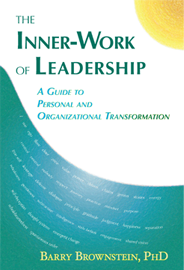Revelations in the Chinese food scandal continue to grow. Consider this list of tainted foods provided by Chinese muckraker Zhou Qing: “Seafood laced with additives that lower men’s sperm counts, soy sauce bulked up with arsenic-tainted human hair swept up from the barbershop floor, and hormone-infused fast food that prompts 6-year-old boys to sprout facial hair and 7-year-old girls to grow breasts.”
Ok, we all get the point by now—don’t trust imported food from China. But there is a much larger lesson to be learned here and that lesson is to understand why our own domestic food supply is not similarly contaminated.
The common wisdom about anything is often wrong. In the case of the Chinese food scandals, the common wisdom seems to stem from one belief—namely that it is only because of our own strong food regulations that the United States has escaped its own domestic food scandals. This belief is dangerously false.
This belief can be almost instantly dismissed as it is unsupported by recent evidence. After all, have not the Food and Drug Administration and other government agencies allowed numerous shipments of tainted imports into this country? If the FDA is an effective watchdog, why has the FDA only recently acted to block imports of five types of farm-raised Chinese seafood that are routinely contaminated with dangerous chemicals? If our government is a champion of the consumer, why is there a loophole in the law that permits corporations to use imported ingredients and not disclose the origin of those ingredients on their product labels?
But this belief that the government has protected us is more than unsupported, it is also dangerously false. The belief is dangerously false because it feeds the belief that corporations are made of individuals who would poison our fellow citizens if not for the watchful eye of government. This belief is corrosive to our liberty and prosperity.
What then has protected us that from our own scandals? There is one major force at work that most would never consider—our food is safe because we have relatively free-markets. Before we examine this point, let’s return for a minute to China and author Zhou Qing.
Zhou Qing tells a disturbing tale about a poisonous pig-feed additive called clenbuterol. Although it is poisonous to humans, it makes pork redder and meatier. Newsweek tells this story:
Zhou hears from a food-safety official about a provincial political leader told by a farmer that his pigs still get the banned chemical because it makes their meat a hot seller in urban areas. “Don’t you know that it harms people?” asks the official. “‘Yes,” replies the farmer. “But city people have free medical care, so it’s no problem.”
I would state with certainly that very few American businessman or farmers think like the Chinese farmer. They don’t think: “City dwellers are buying my product; I can harm them.” in his Forbes essay “A Virtuous Cycle” helps us to understand why. He explains that a key ingredient in the development of free-markets is trust, and capitalism has been moving in the direction of more trust:
That evolution, of course, has not taken place because capitalists are naturally good people. Instead, it’s taken place because the benefits of trust—that is, of being trusting and of being trustworthy—are potentially immense and because a successful market system teaches people to recognize those benefits. At this point, it’s been well demonstrated that flourishing economies require a healthy level of trust in the reliability and fairness of everyday transactions. If you assumed every potential deal was a rip-off or that the products you were buying were probably going to be lemons, then very little business would get done.
In other words, in a free-market economy, a firm’s reputation is critical to its success. In the United States, firms don’t poison their consumers, not just because their ethical values won’t allow it, but also because their reputation would be destroyed and with that, their profits.
In a free-market economy, honest transactions do not occur only if you have affection for the people with whom you are dealing. The Chinese pig farmer who is poisoning others is able to sleep at night because there is no social norm of trust that has been established by commerce in a free-market. In his eyes, city dwellers were less worthy than rural dwellers. Perhaps to the city dwellers, the farmer was just a mere peasant. Both attitudes breed contempt and bad behavior. Provincial and ethnic prejudices run very deep in China.
In our own country, let us count our blessings. Our food supply is relatively safe not because we have strong government watchdogs, but because we have a strong free-market economy.



The Free Market is always superior to top down government and political actions.
Ron Holland, Editor
FreedomFest News http://www.freedomfest.com/news.htm
Ron,
Many will need more than one sentence to be convinced of “always.” The problem is that while the market will usually provide superior results than government, it may not provide better than the ideal results that some can imagine in their minds.
Yes – it seems that there has developed a collective belief that the government keeps us safe from tainted foods. As you correctly point out, there is something larger that is responsible for the overall safety of our food market which is the mechanism of a free market. It seems that many are under the illusion that the complex rules and bureacracies of government are responsible for the what the market does naturally.
Of course, the consequence of this belief are more complex and larger government bureacracies. The reality is that these actually hinder and get in the way of the natural cleansing process of the market forces.
I would suggest that a less complex and simpler regulatory environmnent that focuses on maintenance of the market rather than trying to engineer results would make things even safer at the macro level.
The forces of special interests who benefit from a govenment that tries to engineer certain results that they pay for will continue to make this difficult. And, of course, the bloated bureacracy itself will maintain itself and rationalize it’s ever increasing reach as necessary for our own collective interest.
Finally, I also see this particular GAIL (Genrally Accepted Illusion) mainfested in the hierarchy of organized religions. The result is sadly that people start to substitute ceremony and form over true substance and spiritual experience. The similarity is that people collectively come to the false belief that the keys to the kingdom and enlightenment are only through the carefully ordained rules and regulations of yet another bureacracy. Of course, this keeps people away from the very objective that these organizations claim to achieve.
Bob G.
Bob,
Indeed, many gain by having the regulatory environment continue as it is. That may be the heart of the problem—that too many have a vested interest in continuing to lobby government for their own special interest.
Here is the good news though—in my MBA classes I have seen a definite shift over the years in the number of students who felt it was ethical to lobby government for subsidies and restrictions that only benefited their firm or industry.
It was not too long ago that a sizable minority of every MBA class I taught, felt they had a duty to their shareholders to seek gain from governmental action. In my classes at least, this sizable minority as become an occasional trickle.
Once the playing field is not level and it is tilted towards any particular interest, the resources available to create value that are the natural result of market forces at work will be “hi-jacked.” These resources that could be used for the real creation of wealth and advancement are necessarily used to compete for or buy, through the political process, an equal playing field.
This is not as obvious as it might seem as many involved in this process do indeed have altruistic motives in many respects. It is merely a sympton of not stepping back to see the bigger picture and understanding the root causes of the problems they observe and experience. In fact, rarely do any of us realize that we are part of the problems that we so often profess to want to fix!
As Einstein said, “The problems we have created require solutions at a higher level than that which created them.”
The ability of recognizing and surrendering our paradigms and suspending judgement is a rare and courageous attribute that is foundational for all transformation to take place. The mere awareness that there is more in play than our particular role or place in a process or structure creates the ability for us to see what would not have been known otherwise.
In an interesting twist on this concept, the book “The Black Swan” by Nassim Nicholas Taleb, discusses how most transformative events or Black Swans were actually the result of accidents or unplanned/unforeseen consequences. This speaks to the fact that much advancement does not come about as a result of human planning. My guess is that our current system will only change as the result of unforessen “Black Swans.”
Bob G.
Bob G.
I can think of many “black swans” that would disrupt the current system; unfortunately my guess is that most of them will result, at least in the short-run, in a demand for more interference by government.